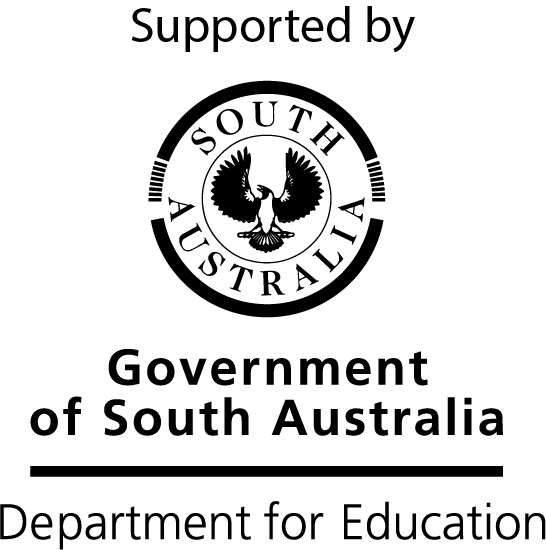Driving high-quality research to improve children’s lives
The Fraser Mustard Centre brings together leading Australian child development researchers and innovative government policy makers and planners to improve the development, education, health and wellbeing of young Australians.
The Fraser Mustard Centre is a unique approach to research translation between the University of South Australia and the Department for Education.
The Fraser Mustard Centre aims to:
- improve and promote the health and wellbeing of all children and young people in South Australia through the unique application of multidisciplinary research;
- help shift focus from the historical delineation between health and education services to an integrated approach with a focus on ‘child development’;
- build capacity amongst public sector staff and academic researchers to design, undertake and use research to improve the environments in which children live and the service systems which support families;
- attract research funding for shared priorities for research that leads to improved developmental, health, wellbeing and education outcomes for children

Current Projects
-
Self-Regulated Learning
Self-Regulated Learning is described as a process in which learners actively take control of their own learning experience by setting goals, planning, monitoring, evaluating, and adjusting their learning strategies to optimize their performance and achieve desired outcomes. These abilities have been shown to be a predictor of educational success and lifelong outcomes, such as income and health. Although self-regulation is frequently noted within School curriculum, we are unaware of any subjects or lessons dedicated to the development of self-regulated learning skills being delivered in Australia. A scalable, low-cost intervention targeted at year 1 students in Germany was found to have substantial effects on impulse control and self-regulated learning, with sustained impacts on long term academic success. This research project seeks to replicate the Schunk (2022) randomised trial, adapted to the Australian context and extended to year levels 2, 4 and 6.
-
Rapid Reviews
Academic Motivation
To deliver concise summaries of existing evidence, supporting time-sensitive decision-making in policy and practice. These reviews are more efficient than systematic reviews, requiring fewer resources—time, labour, and financial investment—while still providing valuable insights. Rapid reviews enable practitioners and policymakers to swiftly access relevant information, facilitating the implementation of effective interventions, defining key constructs, and identifying candidate measurement items.
-
Genetic Education Research Data Infrastructure (GERDI)
In South Australia, newborn blood samples are collected by neonatal nurses or midwives and sent to the SA Newborn Screening Centre for testing. At two days old, screenings can detect galactosaemia, congenital hypothyroidism, cystic fibrosis, and over 30 other disorders. Advances in genetics continue to uncover new developmental risk profiles, and the data from these screenings could be invaluable for early intervention and service improvements. Linking genetic information with education system data could enable groundbreaking scientific research.
-
Natural Language Processing
This project, hosted by the Fraser Mustard Centre, aims to leverage Natural Language Processing (NLP) to assess students' Self-Regulated Learning (SRL). By applying advanced NLP algorithms to existing survey and self-reflection data collected by the Department at the Australian Maths and Science School (ASMS), the initiative seeks to develop an innovative tool for gaining deeper insights into students' SRL.
Completed Projects
-
Self-Regulated Measurement
This set of reviews planned are to support the Department in defining constructs/terminology as stipulated within the Department’s new Strategic Plan. Clear definitions are crucial for the Department for Education as they ensure uniform understanding and interpretation among stakeholders, central office, schools and school communities.
-
Rapid Reviews
Academic Buoyancy
This set of reviews planned are to support the Department in defining constructs/terminology as stipulated within the Department’s new Strategic Plan. Clear definitions are crucial for the Department for Education as they ensure uniform understanding and interpretation among stakeholders, central office, schools and school communities.
Metacognition (Interventions)
This report examines the evidence on interventions aimed at enhancing metacognition in primary and secondary education. Through this rapid review, we explored whether the effectiveness of metacognition interventions is influenced by the age of the students, as well as other contextual factors such as the nature and duration of the intervention, the individuals delivering it, and its practical implementation.
Metacognition (Interventions) report
Metacognition (Measurement)
-
Evaluating the WEC as a Screening Tool for Student Wellbeing and Performance
This report, commissioned by the South Australian Department for Education, evaluates the potential of the Wellbeing Engagement Collection (WEC) items as a diagnostic screening tool for mental health issues and academic underachievement in individual children. Results showed that WEC items alone are insufficient for diagnosing mental health concerns or academic performance issues at the individual student level, however this does not dimmish the WECs value as a population measure as it was originally intended for.
-
Leveraging data to support young people’s education and wellbeing dataset (Leveraging WEC dataset)
The dataset contains deidentified and aggragated linked student wellbeing data collected between 2014 – 2022 across South Australia, Tasmania, and the Australian Capital Territory. Data is from students from Years 4-12. All data is aggragated by Statistical Area, data collection year, and student year level. This data utilises linkage to sociodemographic and cultural characteristics, academic achievement, enrolment and attendance to allow researchers to explore wellbeing in multiple dimensions.




